By Robert “Bo” Chilton and Stephen Torsell
Columbus has seen boom times recently – at least for some. Population in Columbus has exploded in the last two decades – and it’s not expected to stop anytime soon. Given the enormous investments by Intel and other major companies, the Mid-Ohio Regional Planning Commission expects about 726,000 new residents in the region by 2050.
But that has not spelled good times for all. The influx of people has not been met with an equal influx of new housing options, particularly for people of limited means. This crunch has meant many working people have to stretch to be able to find a place to live. According to the Affordable Housing Alliance of Central Ohio, over 50,000 households in Franklin County are paying more than half of their income in housing costs.
Our agencies saw the impact of this tenuous situation as we managed emergency rental assistance programs during the pandemic. Tens of thousands of our neighbors sought eviction relief and, even today, 6,000 residents per month continue to visit the Rentful614 eviction prevention hub for help saving their home. If those were a physical queue of people, instead of online visitors, the line for help would stretch from the courthouse doors to old Cooper Stadium on the Hilltop and it would take an hour just to walk to the end of it.
But we do more than just manage crises. Community development corporations and community action agencies work deeply in neighborhoods to improve people’s lives. Our organizations build and manage affordable housing, provide financial education, and provide rental and utility relief for families in hard times. We seek to change the underlying conditions that make housing so unstable for too many people in our region.
But our efforts have received too little support in the statehouse. The Senate’s original budget contained many provisions that would have done real harm to our efforts. Thankfully, the Senate’s omnibus bill reinstated a much-needed investment in new affordable housing that was supported by both the Governor and the state House. The Senate’s amended budget also removed a problematic proposal that would have limited property tax relief for new and rehabbed duplexes. But these positive changes are significantly blunted by an extremely harmful provision that remains.
The Senate’s bill abolishes the Ohio Housing Finance Agency (OHFA), the state’s independent, professionally-managed housing finance authority, and replaces it with an office within the Department of Development. Every state has a housing finance agency, which allocates federal tax credits to affordable housing developments in their state. Investors from around the country purchase these tax credits, and the proceeds are invested into the housing development. Tax credits fetch different prices in different states, depending on market conditions, and – importantly – the predictability of how the housing finance agency will distribute the credits.
OHFA has been recognized nationally as a high-performing housing finance authority, in part because its independent structure creates predictability for housing developers and investors. This has helped create solid demand for tax credits in Ohio, which attracts much-needed private investment into affordable housing development.
The Senate proposal would remove a number of the tools that make OHFA effective and predictable, and would open the agency to new political headwinds that it is largely shielded from today. The cost of uncertainty in this case is not just added bureaucratic headaches – it could lead tax credit investors to invest in other states with more certain returns. This would cost Ohio real dollars – dollars we cannot afford to lose.
As Central Ohio prepares for another wave of new arrivals, we must be moving full steam ahead to build housing that is affordable to people of all incomes. Local community development organizations and affordable housing developers are already facing many headwinds to meet the challenge before us. We need the state as a partner in addressing these challenges – and for that, we need a strong, independent Ohio Housing Finance Agency. We are asking Ohio legislators and the Governor to reject this provision in the Senate budget so that our community can meet the challenges and opportunities ahead.
Robert “Bo” Chilton is CEO of IMPACT Community Action and Stephen Torsell is Executive Director of Homes on the Hill Community Development Corporation. Both sit on the Board of Directors of the Ohio CDC Association

